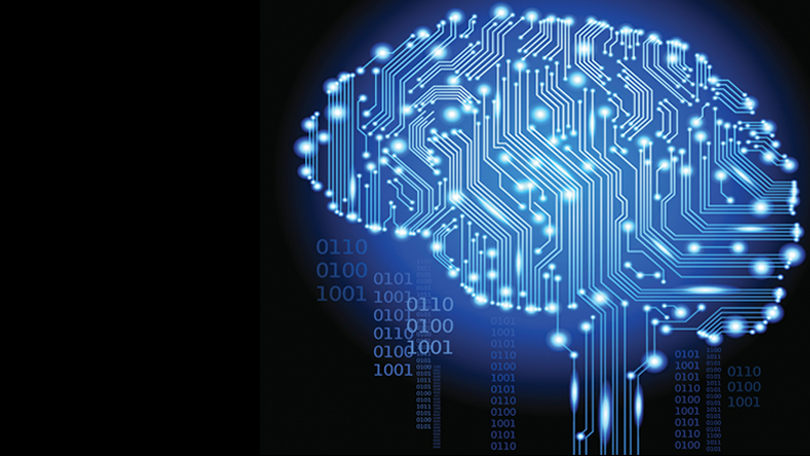
When you think about a universal language, English most likely comes to mind. It’s no surprise as after all, it’s considered one of the easiest and most versatile languages in the world. It’s so helpful in fact that English is the language most developers use when they try to harness the power of this language in the virtual world, say for example its use in artificial intelligence (AI).
However, the process hasn’t been completely fruitful because even if we might consider English to be a little easier when compared to other languages, the same can’t be said when the language is translated to be used by a computer. Try as we might, even the most advanced pieces of programming out there cannot translate this language nearly as well as we can. This raises the question: what language does the world have that can truly help AI?
Fortunately, getting the answer isn’t actually a difficult process. All we need to do is gather a few facts. What is the most spoken language in the world? Some will be surprised to know that it certainly isn’t the English language. As a matter of fact it isn’t even the second most spoken language in the world, as that distinction belongs to Spanish. The language that the most number of people in the world actually speaks is Chinese. What exactly does Chinese bring to the table that English cannot however? How can it possibly help AI when the English language is having so much difficulty?
A matter of segmentation
When it comes to speech perception or the ability to recognize speech, we as a species have evolved to be able to make the most out of the words we hear. We can identify all of the little boundaries that go between words or phonemes in all different spoken languages – even if we might not completely understand the language itself. Naturally, in this day and age we try to apply the same thing on computers, which is why the field of Natural Language Processing (NLP) exists. It’s an incredibly challenging feat because the way computers are programmed can make it very difficult for them to see things our way. Their perception of the language is completely different and so more and more research is poured into the subject matter in an attempt to crack the code.
We haven’t always been unsuccessful however, as computers are reliable when it comes to being hard-coded with a set of rules. While technology itself has been growing and evolving, we still come across the same problems with getting a machine to learn a natural language because of the divide between perceptions. The more we delve into it however, the more we figure out just what makes a machine tick. After all, while humans might have birthed the beginnings of AI and programming, it doesn’t mean that we know absolutely everything about how a computer absorbs information.
Using Chinese as a foundation
It’s already been established that making a computer learn a natural language in a convincing manner has been difficult. What exactly does Chinese add to the literal equation? For starters, when put into writing Chinese is one of the least complex languages in the world. You might find that hard to believe because the Chinese has an almost unreasonable number of symbols, to be used on just about every situation and to describe practically everything. A person can dedicate their entire life to learning Chinese and never be able to claim that they’ve mastered it. There are simply too many different symbols to use, but where we end up failing, the AI could end up being the most successful. After all, the way a computer perceived language is different from us, and it isn’t limited in the ways that we are.
Therefore, its ability to learn a language isn’t hindered by the number of symbols but rather how those symbols react to each other. If there’s a specific symbol to describe just about everything in the language and it doesn’t necessarily involve using them in ways that can’t be clearly explained, then computers will be able to make better use of it. While it might be very complex to us because of how our minds work, to a computer this can be translated to a simple statistic and so it can be used as a proper foundation. An example of this would be how other languages tend to use cases, or genders. For us this tends to be essential because it helps us to understand written and spoken language better. For a computer this ends up being needlessly complicated, and because Mandarin doesn’t have these cases or genders, it has an easier time overall.
A group effort
The country as a whole is heavily invested in the research of practical AI. For China, being able to harness technology in this way is a priority and so more and more AI researchers from the country end up bolstering the ranks. It’s this kind of group effort that is helping researchers figure out new and more exciting ways to aid Natural Language Processing.
For example, speech recognition is something that both NLP as well as AI researchers are doing their best to improve, and it’s something that the application of the Chinese language has shown to affect in a way that’s never been done before. Of course the research is still in its early stages, which means that the trade off for speech recognition or post-processing ends up being the cost as well as the machine language’s overall speed – even its accuracy.
There are also a slew of words that the machine language considers as unknown so much more work will be needed before it bears fruit. However, the fact that the Chinese government has continued to give its full-fledged support means that it won’t be in its early stages for long. Research will be continuous, and as time goes by even more AI researchers will add to China’s already impressive line-up of scientists. This isn’t just the effort of a few brilliant and inspired individuals; the entire country is pushing AI research to the forefront.
An AI revolution
For a country like China to be pushing for advancements of AI, you can bet that there’s going to be results. After all, China is a super power that changes the environment of any field that it decides to throw its hat into. While the research into AI may have begun elsewhere, China has started to play a leading role into seeing their efforts bear fruit. You might think that it’s only the Chinese government that’s making all this happen, but many storied and diverse companies in China are supporting the research as well. For them, using AI to transform the industry isn’t something you can only find in a science fiction novel. It’s an absolute possibility that can only be achieved if everyone works together, and they are absolutely right.
No longer fantasy
The ultimate goal of AI research is just over the horizon now, and all they need to do is to follow it to its conclusion. It seems like more than a coincidence that China, a country that wholeheartedly supports AI, ends up having the language that could perhaps aid the most in processing and speech recognition. Perhaps it’s providence instead? Only time will tell whether or not the Chinese language will truly be able to support AI, but the initial results have not only been promising but impressive as well.
A computer that could completely understand the natural language of Chinese could very well change the face of just about every industry it touches. While those of us who don’t know the language might still need to rely on Chinese translation and interpreting services (which is still the way to go), AI’s development is slowly but surely counting on this particular language as its foundation. It’s fascinating because this could even change the world’s perspective about the Chinese language as a whole. Perhaps all we need to do is see it in the same way that computer does, and maybe this language will end up having the same popularity as English with its overall versatility and ease of use.
This just goes to show how important communication is not just in our society, but in everything else moving forward. One of the most important aspects of AI research is speech recognition, and until this very difficult hurdle is overcome then we won’t see too much advancement in this particular field. Thanks to the wonderfully fascinating Chinese language, the ability for AI to properly recognize speech might not be too far off. While we need to also consider what this means to the world as a whole, there can be no denying how exciting this prospect is. To conclude, the language barrier isn’t something that only applies to our species. It can apply to machines as well, and we are slowly but surely breaking that barrier down with each passing day.
Author bio:
Bernadine Racoma is a senior content writer at Day Translations, a human translation services company. After her long stint as an international civil servant, she has aggressively pursued her interest in writing and research. She has notable fondness for things related to technology, travel, lifestyle, social media, and current affairs. She is also an advocate and mother to 7 successful children.























